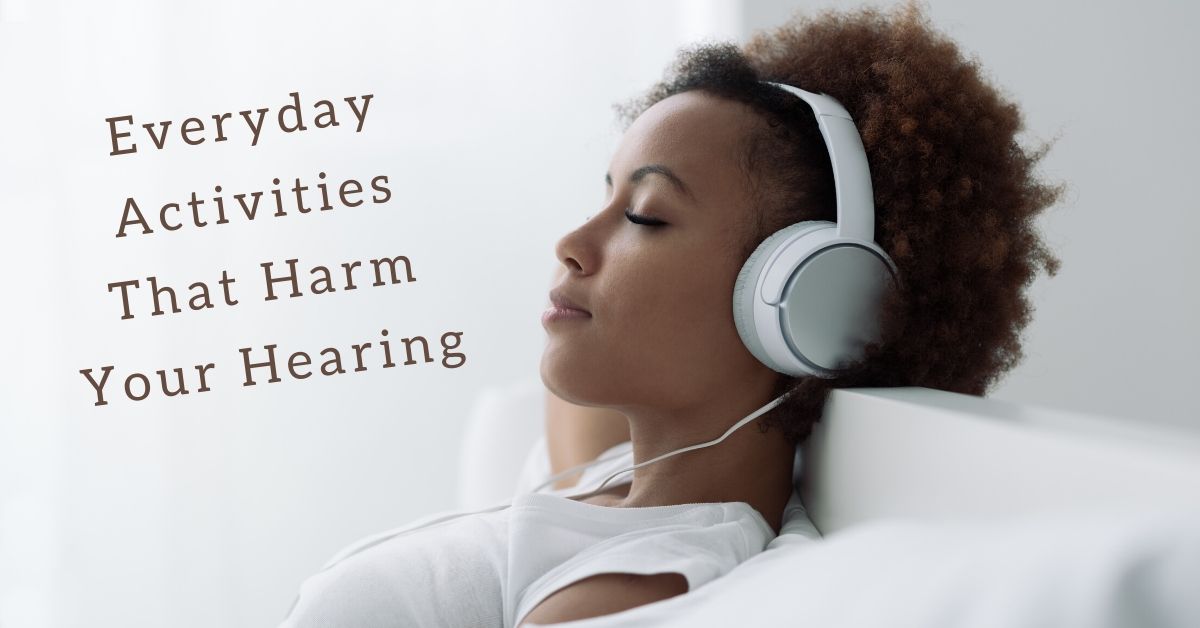It can be hard to get a break from the sounds around us as technology continues to develop. This is a significant issue that should not be overlooked because constant noise can lead to irreversible loss of hearing.
How loud is too loud?
Sound is measured in units called decibels (dB). Noise-induced hearing loss can begin at 75dB when you are exposed to 24 hours of noise, which is about the sound of a busy street. OHSA work noise regulations are based on levels of 85 dB, which causes lasting hearing damage after 8 hours of exposure.
Maximum exposure times fall rapidly from that level. Only one hour of noise is safe at the 94 dB level, while any exposure to 100 dB should not last beyond 15 minutes. Sounds above 120 dB can cause a loss of hearing in seconds, while thresholds above 130 dB cause severe discomfort and immediate, irreversible damage to the ears.
Common origins of damaging noise
While you may not be exposed to too many sounds at 130 dB in your daily life, you probably have some listening habits that could put your hearing in danger. Here are some of the most familiar sources of noise exposure in everyday life:
1. Your commute
Studies show that subway platforms can reach up to 106 dB at its noisiest – when the train comes into the station. According to both the World Health Organization and the Environmental Protection Agency, it only takes thirty seconds of exposure to sounds at that level before noise-induced hearing loss occurs. And once we kill the cells in our ears – called hair cells – they can’t grow again.
And once you get on the train, you ‘re still not necessarily safe. It can be just as loud inside the subway car as on the platform. If you listen to music on the subway cart, you often have to turn it up to hear above the noise, risking further damage to your ears.
2. Your smartphone with earbuds
These days it seems everyone is wearing headphones. People love blasting their favorite music or podcasts while running, riding the train, or working.
Understanding safe listening practices is essential, so you don’t damage your ears. Be mindful of the amount of time you’re listening to, as well as the volume. It’s a good idea to keep the volume reduced or lowered to 60 percent maximum and to make sure your ears get a rest after an hour of listening. While it can be fun to blast the music into your ears, it is not worth permanently damaging your ears.
3. Your power tools
If you are using power tools in your work or are involved in DIY projects around the house, they can damage your hearing. The Occupational Safety and Health Administration (OSHA) has established appropriate workplace noise levels, but those who use power equipment at home do not know how much harm they are causing.
4. Your night out
A night out in the city, listening to live music can be a night to remember. But it’s important to note that live concerts, especially rock shows, play the sound at levels way above 95dB.
Be sure your earplugs are on your checklist of stuff to carry to the show with you, and don’t be afraid to take music breaks and let your ears relax. When you hear a ringing in your ears, it’s an indicator that your hearing is at risk of permanent damage.
Protect your ears
An essential part of maintaining optimal hearing health is taking small steps to recognize dangerously loud sounds and protect our hearing from them. You can get yourself some custom ear protection, or wear a pair of foam earplugs when exposed to loud noises.
There are different types of protection designed for various activities. Musicians will appreciate how custom earplugs filter out the dangerous volumes while still providing access to the music. Hunters’ earplugs allow people to remain linked with nature’s sounds while shielding themselves from the sound burst associated with firearms.
Seeking Treatment for Hearing Loss
If you think you have a hearing problem, arranging a hearing test is smart so that you can learn about the true nature of your hearing loss. We will help you find the right treatment to get your back to living your life.

